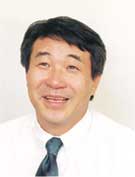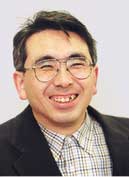
Positive muons simulate the state of the hydrogen (Mu) in semiconductors and provide detailed microscopic information.
Muon Science
"Muon Science" is the research program to develop the application of muon, an elementary particle obtained by the natural decay of a pion, which will be mass-produced with unprecedented intensity in the planned facility. While the use of positively charged muon as a hydrogen isotope with ultrahigh sensitivity is rapidly growing in material research, the negatively charged muon is drawing wide interest as a smart catalyst of d-t nuclear fusion at low temperature. The program covers various research fields including the study on the microscopic origin of distinct material properties such as high-Tc superconductivity and magnetism, the structure and dynamics of hydrogen isotopes and their environment in various semiconductors and organic materials. In particular, the realization of ultra-slow muon beam will facilitate much wider application of muons.
 |
||
|
Positive muons simulate the state of the hydrogen (Mu) in semiconductors and provide detailed microscopic information. |
||
 |
 |
||
| The author of this article, Professors Masatoshi ARAI (left) and Ryosuke KADONO (right), are working in Neutron Science and Muon Science, respectively, at KEK. | |||
-6-